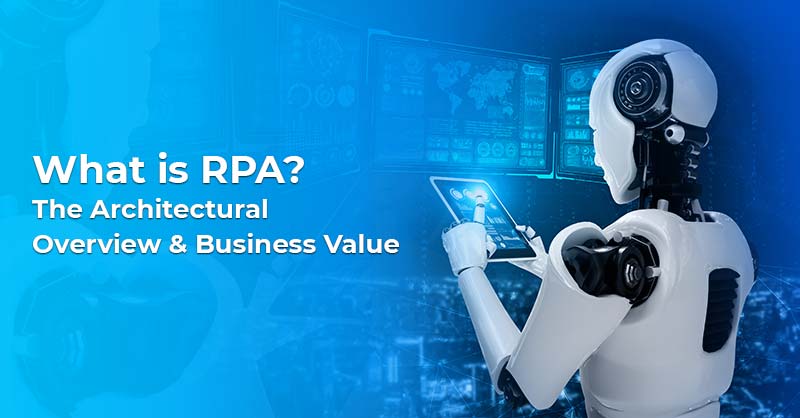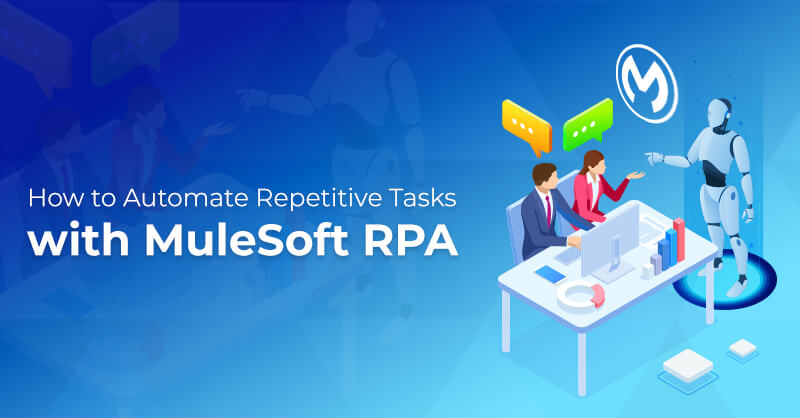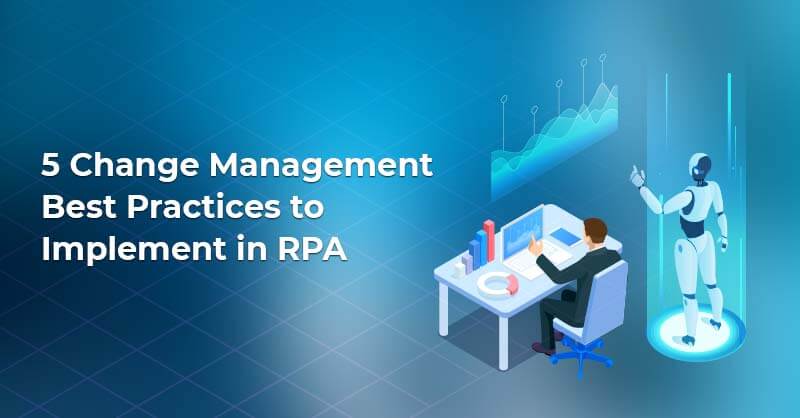Automating Healthcare Processes: How RPA is Transforming the Sector
Written by Imran Abdul Rauf
Technical Content WriterWhenever you visit a healthcare institution, it seems like every personnel from the receptionist to the doctors tends to spend more time rummaging through your information online rather than looking at you. Speaking from the employees’ perspective, this is apparently more frustrating as they didn’t get hired at a hospital or clinic to spend more time with machines and not human beings.
This is where the role of robotic process automation comes into play! RPA development and automation allows the in-house staff to hire a digital assistant who’ll be primarily responsible for accessing, entering, and updating the patients’ information on routine basis.
How is RPA Helping the Healthcare Sector Transform and Grow?
Streamlining Patients’ Records and Appointments
Today, patients have the liberty to book their appointment online by entering all the relevant personal information required. Unfortunately, the very next step of scheduling information based on the patient’s information and preferences is rather time consuming and a lot of legwork. An important consideration while fixing appointment is looking at the doctor’s availability. Even then there are other jump queue tasks such as, attending an emergency case, that disturbs all the already set appointments which then requires rescheduling.
Fortunately, robotic process automation is competent enough to handle such concerns for you. The bots can be used to collect and process patient information, schedule appointment based on diagnosis details, doctor’s availability, and alike. Generally speaking, patient’s data is scanned to create reports which are then used by referral management people and an appointment is made. Furthermore, the bots will also send notifications to the patient in case the date and time are changed as per doctor’s availability.
Quick Account Settlement
Managing accounts is another important, yet tedious activity that the accounting department has to do to calculate all the institution’s and treatment expenses. On the more downside, manual counting makes the process quite prone to arithmetic errors. The prospect of handling all the nursing, food, room rent, prescriptions, and other numerous types of expenses is daunting, but RPA can cater the accounts effortlessly.
Additionally, tools can be used to send notifications to the patient for their invoices and all the related details in an instant. the purpose is to reduce the chances of errors and settling the accounts with efficiency.
Enabling Claims Management
Although most processes in healthcare institutions are the same, more or less, handling claims is particularly complex given the fact that medical insurances are involved. Manual executions or handling through typical tools can result in highly inaccurate results. Consequently, such inaccuracies and inefficiencies can further affect the cash flow. At the same time, some claims have a higher probability of getting rejected as clauses aren’t adhered to. RPA can streamline insurance claims management, locate exceptions where claims aren’t complying with the underlined regulations.
Executing Discharge Instructions
Every patient is prescribed certain diet plans and associated treatment and medicine options after getting discharged. And as a healthcare practitioner, it is certainly impossible for you to determine whether someone is following their medicine and diet plans as instructed. While RPA does cover this issue, bots will send regular reminders to patients for picking up meds, upcoming appointments, tests required, and so on. In addition to that, the RPA tool is also capable of sending out suggestions if the patient’s needs further help with their particular case.
Monitoring Audit Procedures
Speaking of auditing procedures, there are plenty of activities involved when examining the risks involved. Even for producing reports, all the phases throughout the process need to be recorded alongside their results. Then the reports are sent to the respective personnel for approval and audit covering service quality, patient safety, and other related objectives.
Healthcare audit are essential to see if the institution and their practices are complying with the industry regulations. Evidently, manual audit while loads of data from all the relevant departments is a tedious process leading the concerned employees to mental exhaustion, eventually causing errors to creep in.
RPA bots will collect and analyze all the audit data and produce reports accordingly to be sent to the appropriate staff. The bots will also stay updated with the reports status, in other words, locate the people who haven’t yet approved the reports through regular reminders.
Simplifying the Healthcare Cycle
Every institution collects and stores patients’ information in databases. And with important decisions in the healthcare sector depending more and more on data-driven cases, optimizing and analyzing the gathered information is a job hands-full for anyone. RPA bots can help acquire and analyze these ever increasing volumes of data into meaningful reports. The analysis tremendously cut down time for treatment types, diagnosis approaches, and other vital procedures.
Besides that, analytics reports can help doctors, physicians, and related healthcare providers create personalized treatment and diet plans for patients on case to case basis.
Managing Healthcare Workflows
Talking from a holistic standpoint, RPA handles and coordinates different tasks like remote monitoring, case utilization management, patient wellbeing pursuits, and other critical undertakings regarding a healthcare institution’s operations. Every workflow constitutes the roles and activities of patients and healthcare institution’s employees. And handling all the occupations at a broader spectrum definitely requires a trusted, powerful authority without any doubt of leaving inefficiencies in data.
Besides that, analytics reports can help doctors, physicians, and related healthcare providers create personalized treatment and diet plans for patients on case to case basis.
Leveraging RPA for Data Analytics
Robotic process automation has merged with the emerging technologies as a powerful digital transformation tool for businesses worldwide. According to The Economist, 93% of organizations worldwide admits that automation is a great head start for digital transformation. Similarly, the applications in the healthcare industry are all about simplifying the routine processes in a cost-effective, non-invasive manner.
Final Thoughts
This is why big data and data analytics plays a key role for clinical workflow decision making, diagnoses and prognoses pattern detection, claims management, and auditing reporting. RPA development protrudes through advanced deep processing and deep learning tools that tends to understand the machine’s behavior, efficiencies in processes, and other significant tools that impact the overall workflow and performance of any clinic or hospital. The entire purpose of using robotic process automation is the healthcare sector is to consolidate and simplify differing workflows.
Not to mention delegating all the above tasks to RPA can help you save a considerable fortune and make you workflows and operational procedures more efficient.



